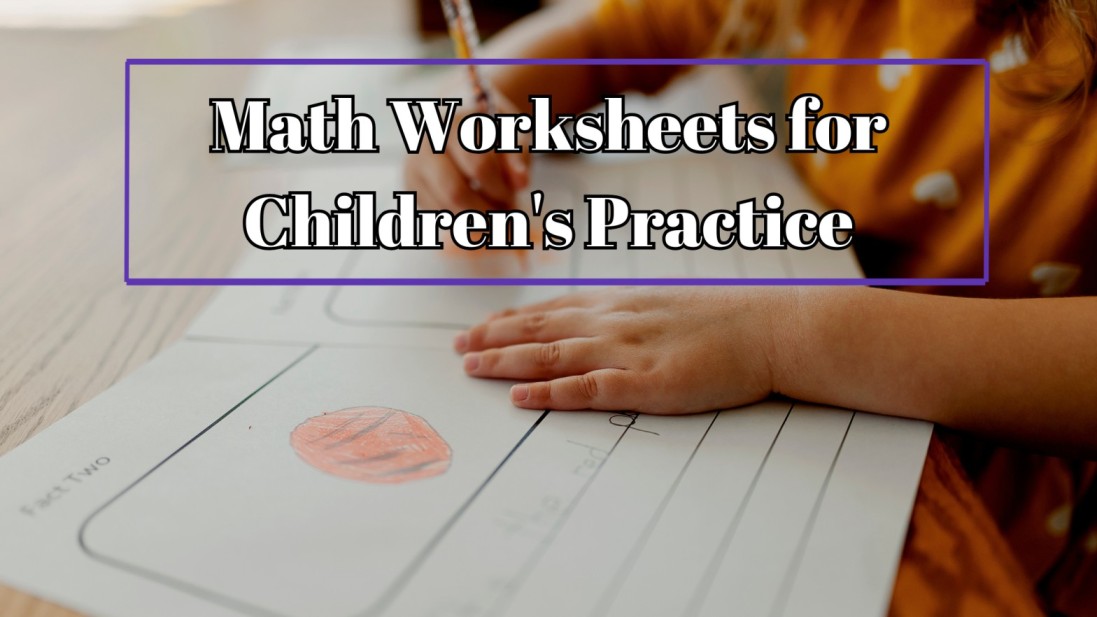Practical Math Worksheets for Children’s Practice
Math can sometimes be a challenging subject for kids, but with the right resources, it can also be an enjoyable and rewarding experience. Practical math worksheets are a great way to help children understand and apply fundamental math concepts, especially when presented in a fun, interactive format. In this blog, we’ll dive into the benefits of using practical math worksheets and provide tips for parents and teachers to make math practice both effective and engaging.
Why Choose Practical Math Worksheets?
Practical math worksheets are designed to go beyond traditional exercises. Instead of rote learning, these worksheets focus on real-world applications, which makes it easier for kids to understand why they’re learning certain concepts and how they can use them in everyday life. Here are some key reasons why practical math worksheets are beneficial:
- Hands-on Learning: By focusing on scenarios kids encounter in daily life, practical worksheets make math relatable. Activities like counting items, understanding measurements, or handling money help solidify concepts.
- Enhanced Engagement: Children are more likely to engage with problems that feel like real challenges. For instance, a worksheet that asks them to “buy” groceries with a certain budget can be more interesting than a simple subtraction exercise.
- Builds Problem-Solving Skills: Practical worksheets often incorporate word problems that require students to think critically and devise solutions, fostering critical problem-solving skills.
- Improves Retention: Studies show that kids retain information better when they can relate it to real-life contexts. Practical worksheets link math to situations they’re familiar with, making the concepts memorable.
Types of Practical Math Worksheets
Here are some popular types of worksheets that combine fun with functionality:
- Money and Budgeting: Worksheets that involve “shopping” with a set budget can help children learn about addition, subtraction, and money management.
- Time-Telling Activities: Teaching children to read clocks and understand concepts like minutes and hours is essential. Worksheets that have exercises related to daily routines (e.g., “What time do you wake up?”) make learning to tell time easy.
- Measurement and Estimation: Worksheets that incorporate measurement tasks, like finding the length of an object or estimating the weight of items, help with practical applications of math in science and daily life.
- Word Problems with a Twist: Instead of straightforward questions, these worksheets introduce problems as stories or adventures that require math to solve. This approach keeps kids engaged and shows them math’s usefulness in solving real-world challenges.
Tips for Parents and Teachers
- Set Clear Goals: Before giving a worksheet, explain its purpose so the child understands the practical application.
- Encourage Self-Checking: Teach children to review their work for accuracy. Practical worksheets often have real-life solutions, so kids can sometimes spot errors on their own.
- Make it Fun: Try using worksheets as part of a game or challenge. For example, you could set a timer and reward kids for completing tasks accurately within a certain time.
For more learning resources and engaging content, check out the following links:
- Jessica Rabbit Quotes – Get inspired with some memorable quotes!
- Lebron James Quotes – Motivational words from one of basketball’s greatest.
- Gaming Resources – Your go-to for the best gaming gear!
By incorporating practical worksheets into your teaching routine, you can make math less intimidating and far more accessible to children. With a little creativity and effort, learning math can turn from a daunting task into a rewarding journey of discovery.
Conclusion
Practical math worksheets are an invaluable tool in making math approachable, fun, and relevant for kids. By grounding abstract concepts in real-life scenarios, these worksheets help children build confidence, enhance critical thinking, and see the value of math beyond the classroom. Whether you’re a parent or a teacher, incorporating practical math exercises can transform math practice into an exciting journey that fosters both curiosity and competence in young learners. Embrace practical worksheets and watch your child’s math skills and enthusiasm grow hand in hand!

